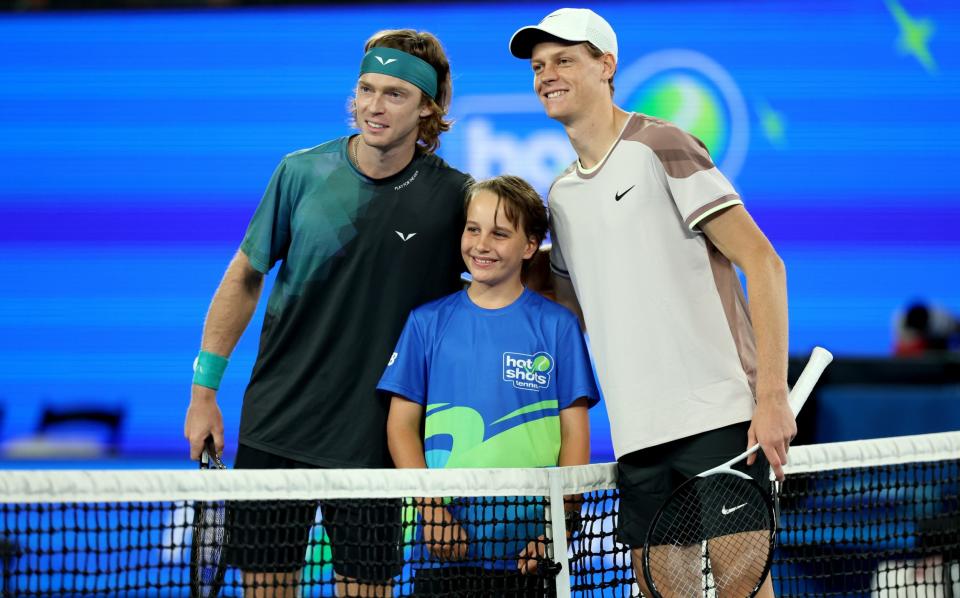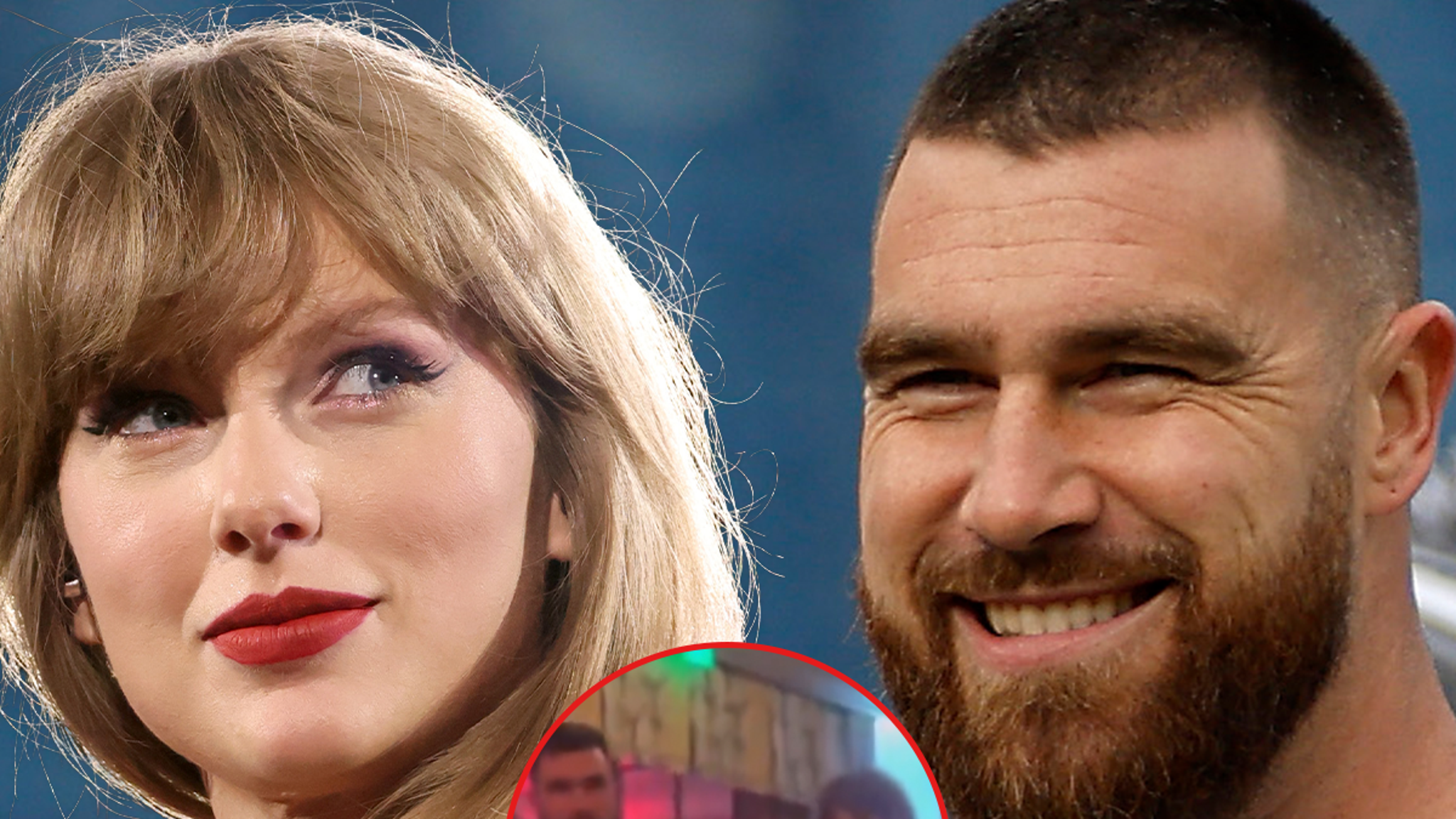A sexism controversy broke out in Melbourne after Australian Open organisers asked the defending ladies’ champion Aryna Sabalenka if she was prepared to move to a smaller court after another day of scheduling chaos.
The suggestion came after the two previous matches on Rod Laver Arena had both lasted more than three hours, raising the possibility that the schedule might not conclude until well into the small hours of Wednesday morning.
Yet Sabalenka and her quarter-final opponent, the 2021 French Open champion Barbora Krejcikova, declined to make the step down from 15,000-seat RLA to 7,500-seat Margaret Court Arena.
The complications around the schedule prompted a sexism debate on Eurosport’s coverage between pundits Tim Henman and John McEnroe.
“I’m intrigued,” Henman said. “Why are they asking the women to move, when they’re not the last match? They’re alright, they’re going to play and are going to be a bit late, but it’s the last match of the day – [Andrey] Rublev and [Jannik] Sinner – they’re going to be behind the eight ball.”


McEnroe replied: “I’ll tell you why they asked the women, because if it went 6-0, 6-1 in one hour then they [the fans] would all be up in arms … they stay on Rod Laver and let’s say they move the guys and Sabalenka wins easily, then everyone’s upset.”
Sabalenka did at least ease the scheduling congestion a little by taking only 71 minutes to overcome Krejcikova in straight sets. As a result, the final match of the evening – which pitted Jannik Sinner against Andrey Rublev – began at 10.42pm. This was already very late, but if either Novak Djokovic or Sabalenka had needed a deciding set to conclude their business, it would have been even later.
“I pray for those guys,” Taylor Fritz, who had lost to Djokovic earlier in the evening, said in relation to Sinner and Rublev. “I don’t think people really fully understand how much time we have to spend doing stuff after we finish playing, like ice bath, treatment with physios, massage.
“If you finish at 2am, there is no chance I’m going to sleep until 5am or 6am. It just screws up your whole clock.”
Fritz’s match against Djokovic moved extremely slowly in the early stages, with the first game lasting 16 minutes and the first set 84. When the third set began, the match duration already stood at almost two-and-a-half hours.
It was at around this time that tournament organisers spoke to Sabalenka and Krejcikova. “They ask our opinions, what do we think, and if we want to be moved right now,” Sabalenka explained later.
“We just told them, ‘Let’s see how this match goes. If it’s going to be really long, then yes, maybe it’s a good idea to be moved, so they’re not going to finish like Medvedev [whose second-round match concluded at 3.39am on the first Thursday] the other night.’ But yes, Novak won that set 6-2, and it still was quite early, and we decided to wait for this match.”
Sabalenka believed that Sinner and Rublev had also been asked whether they wanted to shift their match to MCA, in an adjustment that would have required at least partial refunds to fans. The terms and conditions on night-session tickets promise to provide at least two matches.


Scheduling remains a huge issue for tennis, particularly at the four grand slams, because of the vast and unpredictable variation in best-of-five-set match durations. Before this tournament, Tennis Australia claimed that the addition of an extra day’s play at the start would help prevent late finishes, but this was always a mirage.
For one thing, only the first three days of the tournament would be affected by the shift; for another, even on those days, the night sessions still started at 7pm and involved up to eight sets of tennis.
The problem becomes more pronounced when the day session over-runs, as it did on Tuesday because of Coco Gauff’s 3hr 8min battle with Marta Kostyuk. Such issues have already become a running theme.
The first seven days of this year’s Australian Open all finished after midnight, with that Medvedev match being the worst case, and Felix Auger-Aliassime also playing until 1.39am on the first Monday. Thus far, however, no one has matched the 4.05am finish that Andy Murray experienced last year, nor the notorious 4.38am recorded by Lleyton Hewitt and Marcos Baghdatis in 2008.

Daniel Miller is a sports fanatic who lives and breathes athletics. His coverage spans from major league championships to local sports events, delivering up-to-the-minute updates and in-depth analysis for sports enthusiasts.








